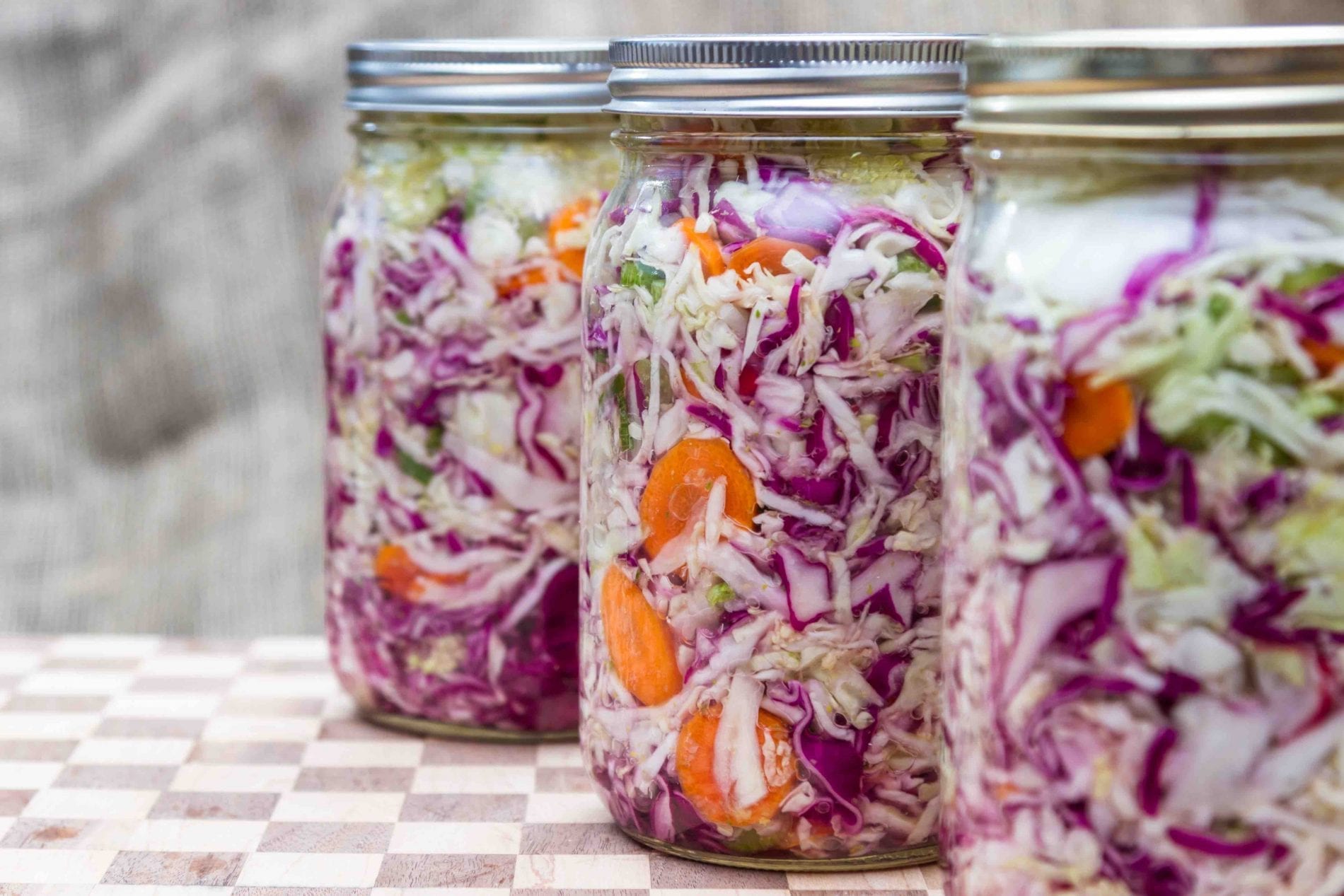When it comes to your gut, fermented foods are one of the most beneficial things you can eat. A wide body of research has shown that incorporating portions of probiotic, or fermented foods, could provide significant health benefits.
Fermented foods have been around longer than books
Humans have been using fermentation as a means of preserving food for thousands of years, with the earliest documented example coming from China, circa 4,000 BC, where the Chinese dynasty produced rice wine. Fresh foods such as meat, milk, fish, fruits and vegetables would perish easily, so our ancestral forebears would preserve the foods for later use in the winter months.
Fascinatingly, no two culture’s fermented foods are alike with their methods of production varying greatly, by using ancient techniques and traditional recipes.
What is fermentation?
Fermentation is an extraordinary food preservation process. Bacteria and yeasts slowly begin to break down the food, resulting in various by-products such as organic acids like lactic acid, or vinegar. Another part of the process is the breakdown of the fibres within the food, making them more bioavailable. Luckily for us, this works as a pre-digestive, as they relinquish the amino acids and other essential nutrients from otherwise indigestible food sources, such as soybeans.
Fermented foods feed your gut microbiome
There is a whole host of gut health benefits associated with some fermented foods, and many traditional ferments are highly touted for their probiotic properties. We need these probiotic cultures in order to provide the right amounts of enzymes to properly absorb, digest, and utilize nutrients in food. These good bacteria can vastly improve digestion, boost our immunity and help maintain a healthy weight.
The fermentation process also has a pre-digestive effect on the food, particularly on beans and grains, by removing phytates and releasing otherwise unavailable micronutrients. Other molecular culprits in non-digestible food, which cause gas and bloating, are also reduced.
Fermented foods can reduce the risk of autoimmune diseases
There have been multiple studies on the health benefits of fermented products. Some foods, such as the Korean salty side dish Kimchi, have been shown to significantly reduce insulin resistance, while a single serving of dairy yoghurt per day could help prevent type 2 diabetes. Not only that, fermented foods have also been shown to help with irritable bowel syndrome (IBS) and constipation because of their wealth of probiotic cultures.
The top 7 fermented products you can incorporate into your diet
Probiotic-rich, fermented foods are easy to get your hands on. You can buy them at the supermarket or make them at home in your kitchen. The best and most accessible sources include a variety of fermented cheeses, Miso (fermented paste made from barley, soybeans and rice) kimchi, and the German staple – sauerkraut.
Why not try kefir? It’s one of the most studied ferments with a tonne of health benefits – it’s a fermented milk drink with similarities to thin yoghurt.
Speaking of yoghurt, plain, natural yoghurt can contain over 100 million probiotic cultures per gram, so having a daily dose can boost your immune system and gut microbiome hugely.
Kombucha is for those that fancy a refreshing tea but want to top up their gut health. It also contains antioxidants and has the power to prevent the onset of heart disease.
You can have too much of a good thing
Okay, so we’ve seen the great things that fermented foods can do for us, but consuming all the fermented food in the world won’t do anything if you’re not incorporating enough digestible fibre into your diet, so make sure you’re eating lots of fruit, vegetables, gluten-free whole grains, nuts, seeds and legumes.
Remember, high amounts of fermented foods may not be beneficial for everyone, so if you have underlying digestive issues, seek the advice of a medical practitioner for further advice.
As a general rule, you want to eat fermented food like a condiment, so a tablespoon or two is plenty.
There is a lot more research being done due to the varying bacterial makeup of fermented foods, and this field is continually expanding. With the greater understanding of bacterial cultures, comes a better understanding of their many and varied benefits, that were previously unknown.
The Shift season one is available on all podcast platforms and is your go-to guide for all things gut. Subscribe now.




